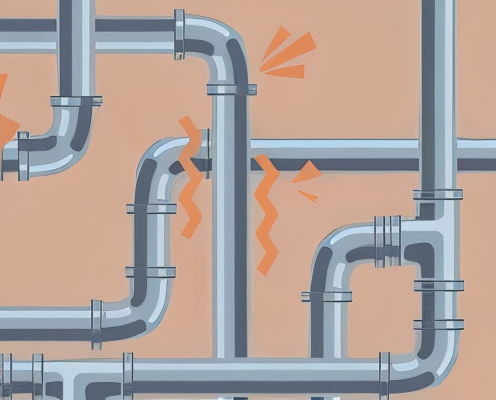The plumbing system in your home should operate with a certain level of quiet efficiency. So, when a strange banging, whistling, or rattling sound starts echoing from your walls, it can be unsettling. While these noises might sound alarming, they are often a signal that something specific is happening within your pipes. Instead of a sign of impending disaster, think of them as clues that can help you identify a problem before it gets worse. Here is a guide to what those different noises are telling you and what you should do about them.
What That Noise Is Telling You
Hammering or Banging
This is perhaps the most common and dramatic plumbing noise, often referred to as a water hammer. It’s caused by a sudden change in water flow, such as when a faucet is abruptly shut off or a washing machine valve closes. The moving water is forced to stop instantly, causing a shockwave that reverberates through the pipes and makes them bang against the framing inside your walls. The issue can be resolved by installing a water hammer arrestor, which acts as a shock absorber.
Whistling or Squealing
A high-pitched whistling or squealing sound usually indicates a problem with water pressure or a worn-out component. The most likely culprit is a faulty washer in a faucet or a showerhead. When water squeezes past the loose rubber washer, it creates that distinct whistling sound. Another cause could be a partially closed valve somewhere in your home’s water supply line.
Rattling or Vibrating
A rattling sound often points to loose pipes. When water flows through them, the pipes vibrate and knock against each other or the interior of your walls. This is common in older homes where pipes may not be properly secured, but it can also be a sign of high water pressure causing the pipes to move excessively. A professional can easily secure the loose pipes to silence the noise.
Gurgling
Gurgling noises coming from a drain or toilet are a classic sign of a venting or drainage issue. Your plumbing system has vents that allow air to enter the pipes, preventing a vacuum from forming and ensuring water flows smoothly. If a vent is clogged or there is a blockage in the drain itself, the air can’t flow correctly, causing that gurgling sound as the water struggles to pass through.
When to Call a Professional Plumber
While some of these issues can be easy to diagnose, others require a professional to safely and effectively fix the problem. You should always call a professional plumber if:
-
The noises are persistent and don’t stop.
-
You’ve tried simple fixes (like plunging or checking for loose washers) without success.
-
The noise is accompanied by leaks, low water pressure, or other issues in multiple fixtures.
-
You suspect the issue is deep within the walls or your main sewer line.
Ignoring strange noises can lead to more significant damage over time. Addressing these issues early can save you a lot of time, money, and stress down the line.

